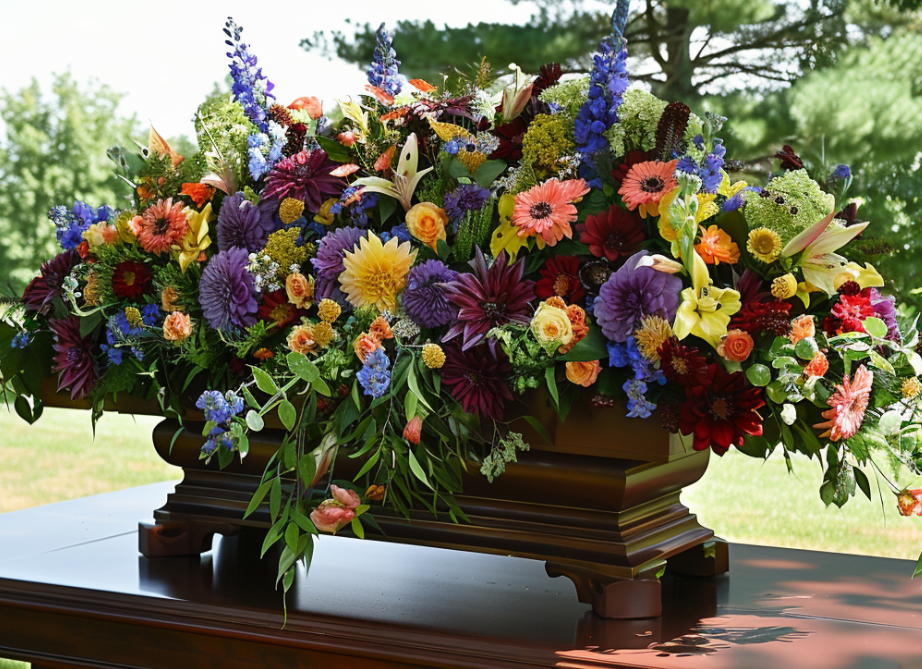How To Write and Deliver A Eulogy
Giving a eulogy can be a daunting task, but it doesn't have to be. Here are some tips and advice on how to make the process easier.
1. Decide what to say.
Take some time to think about the person you are honoring and what they meant to you. What are some of your fondest memories? What did they teach you? How did they make you feel?
2. Putting your thoughts into words.
Write down everything that comes to mind, even if it doesn't seem like it will make sense in the end. You can always edit later.
3. Start thinking about Structure.
How do you want your eulogy to flow? What points do you want to hit? How can you best tell the story of the person you are honoring?
4. Time to start writing.
Again, don't worry about getting everything perfect on the first try. Just focus on getting your thoughts down on paper.
5. It's time to start editing.
Go through and tighten up your language, remove any unnecessary words, and make sure everything flows smoothly.
6. Last step is to practice.
This will help you to be more comfortable with delivering your eulogy, and it will also help to ensure that you don't forget anything.
It doesn’t matter if you have a day or two weeks to write a eulogy, or if you’re delivering it at a memorial service or at a funeral in a funeral home in Sterling, IL , eulogies are hard. These tips might make the writing and delivery process a bit easier:
- Keep it Brief – Although it seems tough to cram a whole life into a few minutes, the eulogy should not be longer than 5 minutes. Focus on the main parts of the deceased’s life, and be sure to write your speech down so you don’t stray off topic.
- Be Personal – Focus on the good and positive things in the deceased’s life, and don’t be afraid to add a bit of mild humor to keep things light. Most importantly, don’t be afraid to add a few personal stories or memories.
- Be Prepared – Write your eulogy before the service. That way, everything you are going to say is planned out so you don’t have to worry in the moment. Print it out on a paper so you’re not messing with a phone or tablet.
- Don’t Forget a Bio – While you can structure the eulogy with stories and moments, it’s easier to frame it as a short biography. Include details like place of birth, marriage, children and other big milestones to keep the story linear and easy to follow. Though these details may seem trivial, they are an important part of every eulogy.
- Stay Positive – Although cremations and memorials are somber, you should still remain focused on the person’s life and not their death. Avoid talking about negative moments or things that might cast a poor light on him or her, as the purpose of the eulogy is to honor the deceased.
- Be Yourself – You don’t have to be a professional actor or public speaker, but be aware of your delivery. Try to use a light conversational tone, and look up from the paper every few sentences to connect with the rest of the people at the service.
- End Positive – End your eulogy on a good note, like a fond memory or the impact the deceased had on your life. You can also finish by saying a final goodbye, or mentioning that this is exactly the way the person would want things to be. You never want to leave the funeral attendees feeling more upset than when they arrived.
Writing and giving a eulogy doesn’t have to be stressful or incredibly hard if you are prepared. These tips and tricks are here to help make the process easier on you in your time of loss.
If you want more tips on eulogies, or want to learn more about your options for Sterling, IL funeral homes, Schilling Funeral Home & Cremation is here to help. You can reach out to us by visiting 702 1st Ave Sterling, IL 61081, or calling (815) 626-1131. We’re happy to help in any way we can.
Key Takeaways:
When writing a eulogy, start by introducing yourself and giving some background information about the person who died. Share any important facts or highlights about their life. Highlighting their accomplishments, sharing personal stories, and conveying your condolences to their loved ones are all important parts of a eulogy. Then, share some important facts from their life before wrapping up with a touching sentiment that celebrates their memory.










